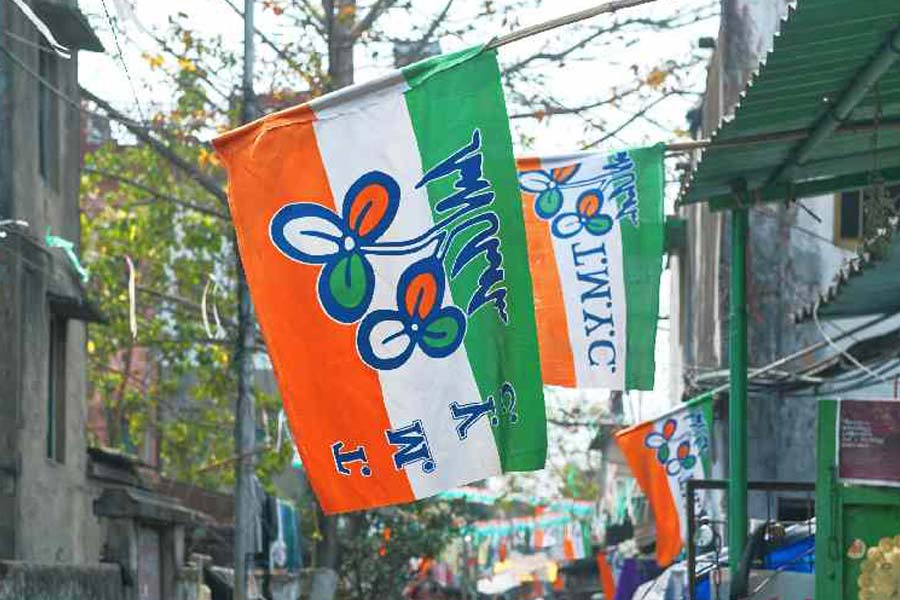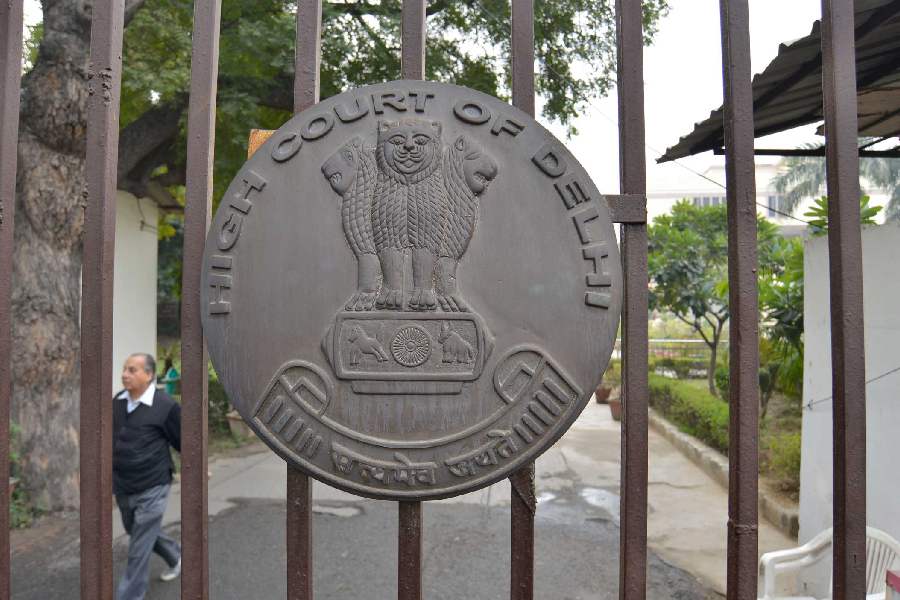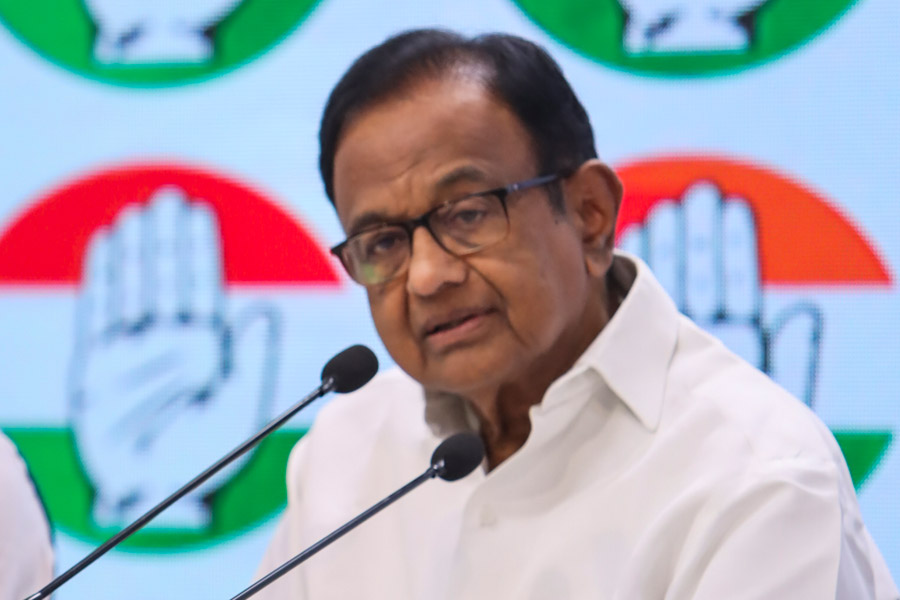The Covid-19 pandemic has sounded a possible death knell for many single screen theatres across Bengal, said owners.
Many of the theatres had already been bleeding with the arrival of multiplexes, "high" GST slab for regional films and "fewer blockbusters". The prolonged shutdown because of the Covid-19 curbs has made reopening a challenge even after the curbs are lifted.
Reopening will mean additional expenditure on sanitisation and social distancing, which will put off many owners who are already reeling under a cash crunch.
An air-conditioned single-screen theatre - with 400-500 seats - in the city spends at least a few lakhs of rupees per month on salaries, power bills and other fixed cost components. Zero ticket sales for over four months has emptied the coffers of the owners. As a result, many have either curtailed or stopped payments.
"We are paying 50 per cent of the salary to our employees. If the shutdown continues, even that will be unlikely. We might have to opt for a temporary shutdown," said Debashish Dey, in charge of operations at Paradise, a single-screen theatre at Esplanade.
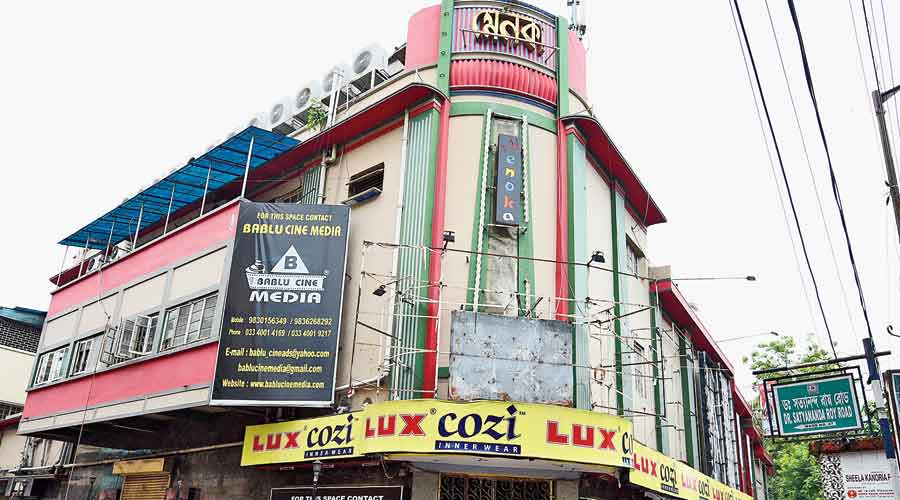
Menoka Cinema Gautam Bose
The hall employs around 20 people. Before the lockdown-induced closure, the hall's monthly expenditure was over Rs 10 lakh. Now, it's around Rs 4 lakh. The projector, the screen and the sound system need maintenance even when the hall is shut. The monthly average earning from ticket sales, which was over Rs 4 lakh earlier, is zero now, Dey said.
Vidisha Basu, the owner of Prachi Cinema - with 545 seats - in Sealdah, spoke in the same vein. "I have around 10 employees, most of them old-timers. I am not being able to pay full salary to them. But I am paying whatever I can according to my capability," she said.
Many halls may close down unless the government intervenes, a number of owners told Metro.
"There are around 175 single screen theatres in the state. Without government intervention, roughly a fourth of them are staring at permanent shutdown," said Satadeep Saha, who owns multiple halls in and outside the city.
By government intervention, he meant "subsidy on ticket sales, soft loans and other financial incentives to keep the halls running" once the Covid-19 curbs were lifted.
Saha, a member of the Eastern India Motion Pictures Association (EIMPA), pointed out that even after the halls reopen, they would have to run old films for at least a few weeks. "The producers will want to watch the situation for some time before releasing a film, which entails a huge expenditure on promotions," he said.
The association has been in touch with the state government, seeking support in difficult times.
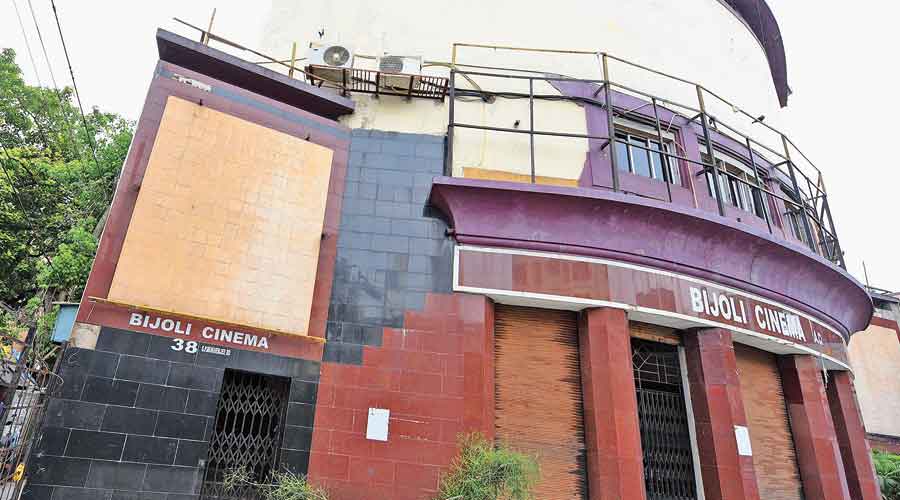
Bijoli Cinema Gautam Bose
Arijit Dutta, the owner of Priya Cinema, Bioscope chain of multiplexes and other standalone theatres in the state, said many hall owners in the near future would look for other avenues. "Some might sell the property to a promoter, some might start another venture at the same plot. But they will stop being cinema halls," he said.
"Multiplexes are also under pressure because they have to pay huge rents to malls. But many standalone theatres were bleeding even before Covid-19 struck. It will be extremely difficult for them to make a comeback," he said.
"The closure of single-screen halls will be detrimental, especially for the Bengali film industry."
Dutta employs over 100 people across the theatres and multiplexes he runs. "I am being able to pay a part of the salary to a section of the employees," he said.
Most hall employees - projector operators, ushers and others - have been doing only one job throughout their lives. Finding an alternative livelihood is tough.
Deepak Shaw, 50, is one of them. Shaw has been an usher - people who lead viewers to their seats - at Paradise for 24 years. He is out of work now and has been getting Rs 4,000 a month for the past few months.
The Titagarh resident has his parents, wife, a son and a daughter to feed. "We have been living on rice from the ration shop and occasional help from NGOs," said Shaw.
On at least two days a week, he cycles for a couple of hours from Titagarh to Esplanade to reach his workplace. "I chat with a security guard or some other employee who also keeps coming back. We discuss old times and then I return home," said Shaw.
Producers said there was no shortage of content and the closure of even one hall would mean a lost opportunity. "Around 1,500 films are released in India every year. A fifth of them do not get halls," said Firdausul Hasan, a producer and president of the Film Federation of India.
Some owners had a word of hope. Suranjan Paul, the owner of Minar, Bijali and Chhabighar and Navin Chokhani, the owner of Navina, said they were paying full salaries to their employees.
"Business is about creating a reserve that can be tapped to stay afloat during times of crisis and come back stronger when the situation improves," said Chokhani.





